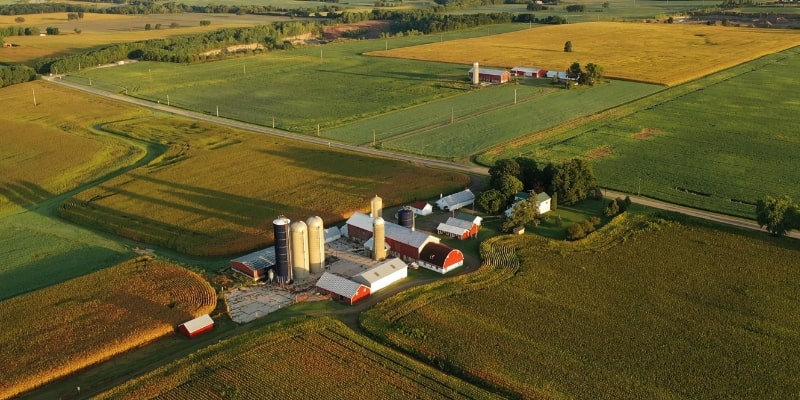Join us
Stay informed about progress and ways to get involved.
Profitability has never been more important but is increasingly difficult to achieve. As more frequent, extreme, and variable weather increases production risk, farmers need new solutions for supporting resilient operations and long-term profitability.
American farmers steward two-thirds of our nation’s land, all while producing food, fuel and fiber. By adopting and maintaining conservation practices on that land, farmers can also improve soil health, protect water quality, storecarbon, and reduce risk from extreme weather.

Sustainable agriculture finds innovative solutions that keep American farms profitable and make the land more resilient for the future.
Farming conservation has been practiced for generations and continues to advance with new technologies and techniques. Agriculture need sustainable practices to thrive, and Americans needs Congress to create programs to help farmers succeed.
We need Congress to work together to support sustainable farmers.Congress and the U.S. Department of Agriculture should support farmers through voluntary, science-based policies.

Working with farmers and ranchers to reduce methane emissions from livestock and dairy is one of the most impactful ways to reduce temperature increases today. U.S. agriculture can achieve up to 50% methane reduction from manure and up to 20% from enteric emissions by 2030. To get there, Congress, USDA and the private sector must increase financial and technical assistance for producers to deploy existing manure management solutions, and they must quickly ramp up research into innovative feed additives and vaccines to reduce enteric emissions.
Learn more
Conservation practices pay off for farmers and farmers’ business partners. That the value of reduced costs and risk, increased yield resilience and diversified income streams extends far beyond the farm field — benefitting farmers and their financial partners, including agricultural lenders, insurers and landowners. Policymakers and farmers’ financial partners can lower the risk that farmers incur when adopting a new sustainable practice by equipping them with increased financial incentives and technical assistance.
Learn more
Voluntary carbon markets have the potential to generate new revenue for farmers, ranchers and foresters who cut emissions of carbon dioxide, methane, and nitrous oxide, and who store carbon in soils, trees and perennial crops. To help ensure agricultural carbon credits deliver durable benefits for producers and the environment, Congress should direct USDA to set guidelines for high-quality credits and to make market access easier and more equitable, especially for producers of color and those with smaller operations.
Learn more
Federal and state policymakers should support climate-smart practices that help farmers optimize yields, minimize excess nutrients, and protect long-term soil health. Wide adoption of cover crops cost share programs is a good start.
Learn MoreSign up for news and alerts as new policies emerge for advancing resilient agriculture. Stay informed about progress and ways to get involved.
Report on how agricultural conservation practices are pivotal to addressing some of agriculture’s most important natural resource concerns.
How farmers and their financial partners can realize the full value of conservation investments.
Stay informed about progress and ways to get involved.
